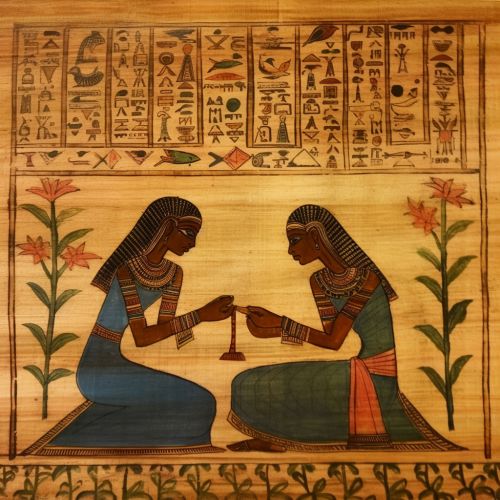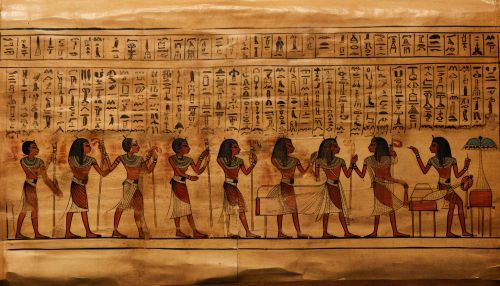Egyptian medicine
Ancient Egyptian Medicine
Ancient Egyptian medicine refers to the practices of healing common illnesses in Ancient Egypt from c. 33rd Century BC until the Persian invasion of 525 BC. This ancient practice of medicine incorporated aspects of spiritualism, magic, and empiricism, with an emphasis on curing diseases rather than merely diagnosing them.
Historical Overview
The earliest records of medical practice in Egypt can be traced back to the 3rd Dynasty in the 27th Century BC. The Edwin Smith Papyrus, written in the 17th century BC, is considered the oldest surviving medical text in Egypt. It demonstrates that Egyptian medical care was highly advanced for its time, as it included observations, examination, diagnosis, treatment, and prognosis of various ailments.


Medical Knowledge and Practices
Egyptian physicians were renowned in the ancient Near East for their healing skills, and some, such as Imhotep, even became gods. Egyptian medical knowledge was recorded in several papyri such as the Ebers Papyrus and the Kahun Gynaecological Papyrus, which provided detailed knowledge of the heart, liver, spleen, kidneys, and the blood vessels.
Herbal Medicine
Herbal medicine was the backbone of Egyptian therapeutics, with some 160 different plant species, including garlic, juniper, and cannabis, used for a wide range of ailments. The Ebers Papyrus lists over 850 medicinal remedies, illustrating the extensive use of herbs in Egyptian healthcare.
Surgery
Surgical techniques in Ancient Egypt were highly advanced for their time, including the earliest known surgical procedures for circumcision and treating a fractured bone. The Edwin Smith Papyrus details treatments for various wounds and injuries, from simple fractures to complex trauma.
Medical Training
Medical training in Ancient Egypt is a topic that remains to be fully understood. It is known that the swnw (doctors) were trained at the Per Ankh or "House of Life" institutions. These institutions are known to have been situated near or within the temples, suggesting a strong tie between religion and medicine.
Religion and Medicine
Religion played a significant role in Egyptian medicine as it was believed that diseases were caused by the wrath of the gods or by evil spirits. Treatments often involved a combination of medicinal remedies, prayers, and magic.
Legacy
The legacy of Ancient Egyptian medicine is profound, influencing later Greek and Roman medicine. Many of the remedies used by the Egyptians, such as honey and willow bark, are still in use today. The concept of the physician as a skilled professional, bound by ethical guidelines, also has its roots in Ancient Egypt.
